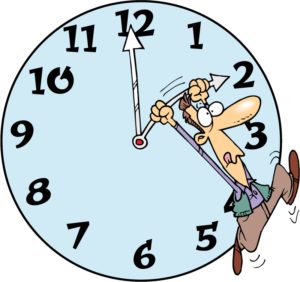UNITED STATES – March 13, 2022 – Sunday March 13 was the time to ‘Spring forward’ by advancing our clocks one hour in accordance with Daylight Saving Time and stress our bodies for weeks by upsetting our natural biologic clock that is affected by light and darkness. Daylight is longer in the summer and shorter in the winter the further you are from the equator. During the summer months, daylight may extend to the early morning hours when most people are still sleeping prompting an action to move the clocks forward by one hour so we can wake up in the morning when the sun rises and have an extra hour of daylight for outdoor leisure activities after the traditional workday. Most countries in North America and Europe have adopted Daylight Saving Time during the summer months.
Fatigue and health problems can occur from sleep loss up to a few days after the ‘Spring forward’ time change. The body’s processes of sleep, being awake, digestion, and immune function are affected. There are more hospital admissions due to heart attacks, strokes and irregular heartbeat. Other health problems include more fatal car accidents, mood swings and seasonal depression. “We’ve discovered that people have about 40 minutes less sleep. Because we’re already short on sleep to begin with, the effects of even 40 minutes are noticeable,” according to Christopher Barnes, a sleep researcher, as told to Mattress Clarity, an organization that reviews sleep products and promotes sleep health.
A person will be better prepared for the time change by minimizing changes to their day/night rhythm. In a recent ABC News interview, Dr. Angela Holliday-Bell, a pediatrician and certified sleep specialist, said that “your body needs time to readjust to a new light/dark cycle.” Some suggestions are to go to bed earlier for a few days before the changeover. After the time change, get some natural sun light upon waking up.
Listen to the full report below:
Contact: Dick Needleman, Health reporter, 103.3 AshevilleFM, [email protected]
More Posts for Show: Asheville FM News Hour
